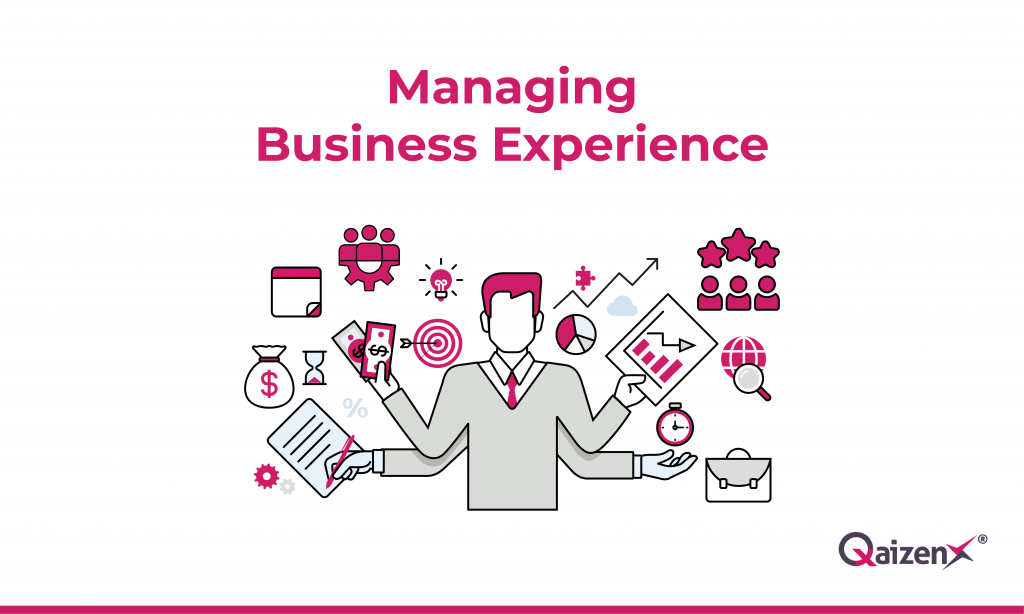What is Experience Management and Why does it Matters?

Experience management is a work by organizations to gauge and further develop the encounters they give to customers as partners like customers, vendors, employees, and investors. Organizations have started to gather experience, notwithstanding helpful information, since encounters are viewed as an upper hand. Experience management platforms offer different types of assistance to computerize the method involved with recognizing and further developing encounters across an organization.
More extensive than customer experience, experience management currently incorporates customer experience alongside different areas, like, brand experience, employee experience, and product experience, which are entirely considered interrelated.
Different layers of information and insights are considered by experience management platforms to identify any experience gaps. They associate available data sets with human feedback, breaking down respondents’ feelings, convictions, and opinions for a comprehensive perspective on the encounters they give. Their techniques incorporate artificial consciousness, prescient investigation, and measurable models.
For CEOs, experience management is an invaluable asset that encourages them to see how their organization functions and how every aspect of the experience is crucial.
Many companies are wagering enthusiastic about experiencing management. By applying methods to improve XM, these companies are achieving their goals and soaring high.
What Is Experience Management
Like we mentioned above, Experience Management (XM) gives prompt input and investigation concerning how four essential areas of their business are faring: customers, products, brand, and employees.
The fundamental reason is that each human experience matters, and using web reviews, XM arrangements give individuals a voice that can prompt positive business change. You can use experience management software/tools to get the information to improve. QaizenX is always there to help you.

Significance of Experience Management
Experience management isn’t only a term; it is a vast aspect behind an organization’s success. You collect information from your customers, vendors, investors, and last but not least, your employees. These are areas that are crucial for any business.
If being a CEO or head of the company, you bother about different people’s experiences and make strategies to improve their experiences, then no one can stop you from achieving your goals. It’s no secret that customer experience is the key to a successful business. Likewise, employee experience. It helps you in attaining CX. We frequently discuss these two topics.
Whereas, there are other areas to look upon too. These areas are equally important and play a vital role in successful business growth. The businesses that pay attention to all their people’s experiences and follow experience management techniques are shining and growing like anything!
Why Integrated Experience Feedback Matters
The CEOs or pioneers of the companies know that brands, customers, employees, and products are all interconnected. Delivering a defective product implies miserable customers, strains brand believability, and adversely impacts employee resolve. With a listening approach that traverses this large number of regions, XM platforms can quit compounding antagonism and fix the issue before it means lost customers or high employee turnover.
People feel happy and satisfied even if the organization views their feedback. Experience management platform can help proactively distinguish issues and dispense fitting assets preventively. An organization using an experience management platform has shown immense growth in its profits.
Experience information and Operational information
Information that mirrors individuals’ insight tells a piece of the story. Similar to why a product does or doesn’t prevail on the lookout. In any case, operational information – like, coordinated factors, production network, financing tasks, fabricating, clarifies “what” is going on. When joined together, these “why” and “what” give business pioneers a method for keeping an ear to the ground and bringing that information into their business right away.
For instance, two people on the same flight may have different experiences. When a traveler was given a pulse survey immediately after their flight, a troubled traveler might have been hot. Available information shows the person sat close to a failing air stream overheating. Experience in addition to functional understanding makes it quicker and more straightforward for business pioneers to fix that issue. Ensure that airstream moves adjusted immediately – and recognize how to improve that part. This information also helps in scheduling proactive maintenance.
Besides, experience, in addition to operational information, provides additional development. Organizations can hop on common issues and fix them more rapidly for the time being. However, they can utilize that information to improve at a product and functional level in the long haul. Regardless of whether it is designing, HR cycles, or maintenance.
What is Experience Management Software?
Experience management software combines the feedback from an ideal targeted segment and conveys significant bits of information and follow-up steps in order to close the circle. Its arrangements expand on the features given by survey software and endeavor feedback management software by adding usefulness that empowers organizations to plan and make informed moves in light of gotten input.
In particular, these tools send investigation dashboards for input information perceptible by partners across an organization. A few products will likewise give specialist-based scoring measurements to boost employees to use experiences presented by the platform.
Experience management arrangements can be utilized for various use cases across a business, including customer experience (CX), B2B account insight, product experience, and statistical surveying. However, most contributions represent considerable authority in just one use case. And a few products will focus on different groups of respondents and permit organizations to portion their crowds.
Things that have practical experience in CX gather customer feedback. And send bits of knowledge to employees who can execute closed circle activities in light of that input. Products intended for B2B account experience gather customer feedback and convey understanding to customer achievement groups.
Product experience arrangements help product supervisory groups gather and examine feedback about their customers’ encounters with a product.
At last, statistical surveying arrangements give notable highlights like exploration managements to empower organizations to review their leading targeted segment.
Experience management software offers the survey improvement and execution features given by overview products and the business-centered investigation features provided by considerable business feedback management arrangements. Experience management tools contrast from study and undertaking input administration devices since they offer extra highlights that consider closed circle activities to return to feedback.
Recent Posts
- Strategies for Customer Expectations | Adapting to Change
- From Feedback to Action: QaizenX’s Approach to Turning Insights into Results
- Enhancing Customer Loyalty through Personalized Experiences
- Unlocking Leadership Excellence: Strategies to Become a Great Manager
- 4 E’s of Employee Engagement and How To Implement Them



